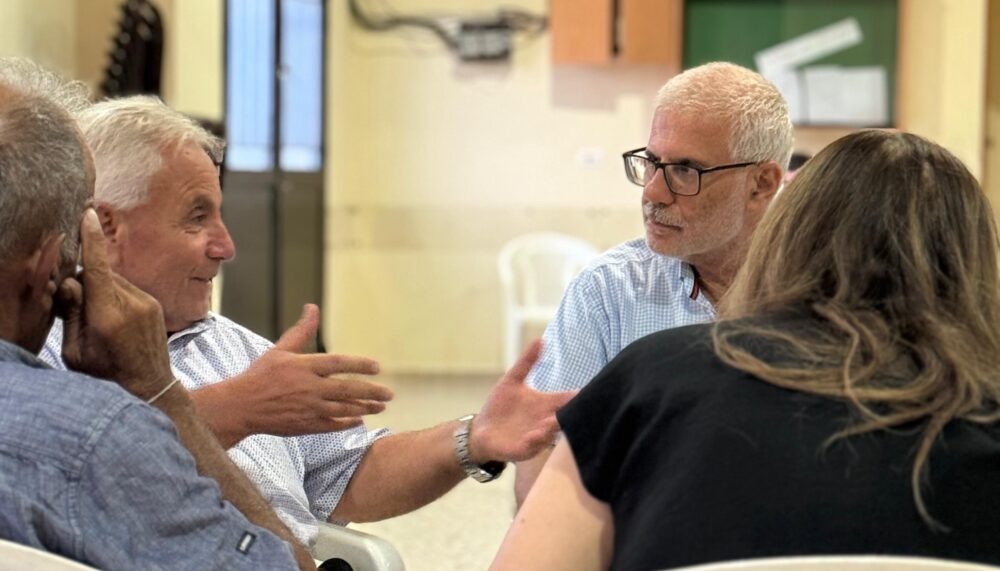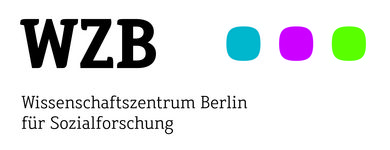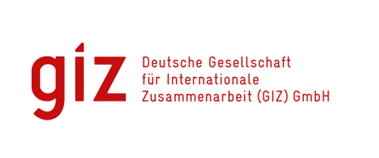CURRENT PROJECT
Evaluation of vertical cohesion intervention on local level

This project rigorously evaluates how participatory governance influences citizens’ trust and vertical social cohesion in 24 municipalities in Lebanon.
Timeframe: 2025 - 2026
This project conducts a rigorous impact evaluation (RIE) of the initiative “Strengthening inclusive local governance and vertical social cohesion in Lebanon,” led by the Berghof Foundation in collaboration with the Wissenschaftszentrum Berlin für Sozialforschung (WZB). In fragile contexts like Lebanon, vertical social cohesion, defined as trust between citizens and governing institutions, is essential for stability, yet remains poorly understood. This evaluation addresses a critical knowledge gap by assessing how participatory planning and decision-making processes influence citizens’ trust and perceptions of local governance.
The study engages 24 municipalities across Lebanon, focusing on marginalised areas such as the Beqaa, Hasbaya, Shouf and parts of Mount Lebanon. Citizens are randomly assigned to working groups alongside municipal officials and civil society actors to identify and prioritise socio-economic projects. This randomised design enables a robust comparison between participants and non-participants, measuring changes in attitudes and behaviours toward local authorities.
Data collection includes baseline and endline surveys, qualitative interviews and process documentation. The findings will be synthesised into an impact report offering evidence-based recommendations for future programming. The project contributes to more effective governance strategies and policy frameworks in Lebanon and other fragile settings.
Background
Social cohesion remains a critical yet understudied aspect of community resilience and sustainable development. Despite the urgent need to understand the dynamics of social cohesion in these contexts, rigorous impact evaluations remain scarce, leaving a significant gap in causal evidence about what effectively fosters social cohesion. This knowledge gap hampers the ability of international development agencies to design effective interventions in these challenging environments. While practitioners believe that various activities can enhance social cohesion, the mechanisms driving their effects are often unclear. Even in agencies with significant portfolios dedicated to enhancing governance structures, the connection between project activities and vertical social cohesion outcomes is seldom explicit. This limits the development sector's ability to make informed, evidence-based decisions. In the case of vertical social cohesion, a prevailing assumption is that participatory planning and the implementation of public services and goods can strengthen the relationship between local political entities and communities. Lebanon presents an ideal case to assess the impact of these interventions since the multifaceted economic and financial crisis has eroded state institutions across all levels, rendering them unable to ensure adequate service delivery, especially in already marginalised localities such as the Beqaa, Hasbaya, Shouf and some areas of Mount Lebanon. The municipalities in these areas, while leading service-provision projects, often lack the capacity, tools and skills to engage inhabitants in the decision-making process. This leads to increased frustration and dissatisfaction with local governance structures. Consequently, trust in authorities is eroded, impeding peaceful and inclusive coexistence in mixed communities. To effectively address these challenges, the causal impacts of participatory planning and decision-making processes—bringing together municipalities, civil society and residents to identify socio-economic improvements—must be rigorously evaluated to unlock their potential in mitigating tensions and fostering trust in local governance.
Objectives
The primary objective of the project is to evaluate how participatory planning and decision-making, specifically involving municipal representatives, civil society actors and community members affects citizens’ trust and the perceived efficacy of local governments. Through a comprehensive and methodologically rigorous impact evaluation, the project aims to generate evidence-based insights into whether and how inclusive governance practices can foster vertical social cohesion. The findings will inform future development programming and contribute to the broader academic discourse on governance in fragile contexts.
Methodology
The project employs a rigorous impact evaluation framework developed in collaboration with the Wissenschaftszentrum Berlin für Sozialforschung and implemented by the Berghof Foundation. The evaluation integrates both quantitative and qualitative methods to assess the causal effects of participatory governance activities. At the micro level, the project engages directly with communities in 24 municipalities, randomly assigning citizens to working groups tasked with identifying and prioritising socio-economic projects. Each municipality hosts three working groups composed of 15 members -- ten experts and officials and five randomly selected citizens from a pre-screened pool. This randomised design enables a robust comparison between participants and non-participants, measuring both attitudinal and behavioural changes toward local authorities.
Baseline data collection was conducted capturing initial levels of trust and civic engagement. Throughout the implementation phase, working groups met regularly to deliberate on community needs, while data is continuously gathered through surveys, process documentation and qualitative interviews. The endline data collection, conducted by a specialised survey firm, serves as the critical point of measurement for assessing behavioural changes and shifts in attitudes among participants. By comparing endline results with baseline data across treatment and control groups, the Berghof Foundation and WZB will determine whether statistically significant differences can be attributed to the intervention itself.
In addition to quantitative analysis, the evaluation process incorporates feedback and insights from participants to better understand their experiences, perceptions of programme effectiveness and any challenges encountered. Qualitative data will be used for triangulation, enriching the interpretation of results and shedding light on the mechanisms behind observed changes. This comprehensive approach ensures that both the 'how' and 'why' of impact are captured, offering a nuanced understanding of the intervention’s effects.
The findings of the RIE will be synthesised into a detailed impact report. This report will assess the measurable influence of participatory planning on socio-economic conditions and community cohesion. Recommendations emerging from the evaluation will address potential improvements to participatory processes, considerations for scalability and integration into wider policy and development frameworks. In coordination with the donor, the Berghof Foundation will share these insights with stakeholders including the Federal Ministry of the Economic Cooperation and Development (BMZ), local communities, government agencies and NGOs to inform future programming.
Partners and Funding
The project is funded by the Deutsche Gesellschaft für Internationale Zusammenarbeit (GIZ) and implemented by the Berghof Foundation. It is carried out in close collaboration with the Wissenschaftszentrum Berlin für Sozialforschung (WZB), which co-developed the rigorous impact evaluation framework and supports the research design and analysis.
The Policy Initiative (TPI) contributes to the qualitative monitoring, evaluation and learning framework, supporting data collection, analysis and presentation of in-depth interviews. This partnership integrates international research expertise with local engagement to generate robust, actionable insights into inclusive governance and vertical social cohesion in Lebanon.


Project lead
Lara Azzam
Senior Project Manager
email hidden; JavaScript is required
Team members
Mohammad Al Mishlawi
Jana Sleem
Media contact
You can reach the press team at:
+49 (0) 177 7052758
email hidden; JavaScript is required


